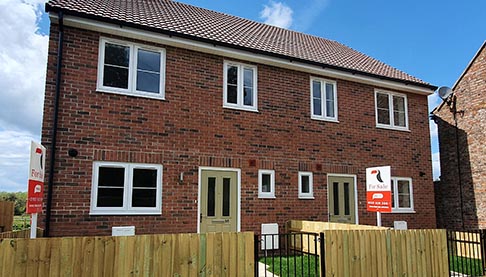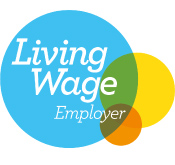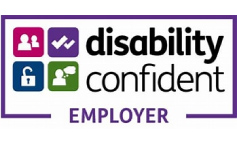Shared Ownership

What is Shared Ownership?
Shared Ownership is a government scheme that offers you the chance to buy a share of a property from a housing association, a non-profit-making body that provides homes. Because you only own a part of the property, you can buy it with a smaller deposit and mortgage.
A smaller mortgage means smaller repayments but you’ll also need to pay:
- rent on the share of the property you do not yet own
- monthly service charges
Shared Ownership homes can be new builds, existing properties, houses or flats. All Shared Ownership properties are leasehold, even houses.
Who can apply for Shared Ownership?
To be eligible for Shared Ownership you need to:
- be a first-time buyer, an existing shared ownership homeowner, or a former homeowner who can’t afford to buy now
- be over 18 years old
- have an annual household income of less than £80,000 (£90,000 in London)
How does Shared Ownership work?
When you buy a Shared Ownership home, you decide what stake in the property you can afford to buy from the housing association. You put down a deposit of at least 5% of your stake and take out a mortgage to cover the rest. You then pay rent on the part you do not own.
You can increase the share you own in the property, through a process known as staircasing, until you own 100% of the property. On some rural sites the amount you can buy is capped at 80% to make sure that shared ownership will always be available in the area.
Another way this is done is called a ‘Buy Back lease’. This means if you buy 100% of the property the housing association will always buy the property back from you at the current market value. They will then resell the property at a lower share.
There’s a legal cost every time you staircase so it may make sense to buy bigger chunks. Your lease may limit on how many times you can do it.
Shared Ownership pros and cons
The pros
- You could buy sooner because of the smaller deposit and mortgage
- It’s more affordable for those on a lower income
- You can increase your share in the property as and when you can afford it
- It’s available on new-build homes and existing properties
The cons
- Shared Ownership properties are leasehold, rather than freehold, so you will not own the land the property is on
- You have to pay service charge that comes with the property regardless of how big your stake is
- When you come to sell, you may have to do it through the Shared Ownership scheme rather than on the open market
- Buying more of the property over time comes at a cost
Which homes are available for Shared Ownership?
All our shared ownership properties are sold through our ‘profit for purpose’ sales, private lettings and management agency TwoCan.
How to apply for Shared Ownership
If you would like to apply for Shared Ownership, please complete our online application form below.
Alternatively you can download our printable version and send this back to us in the post to: Shared Ownership Team, Two Rivers Housing, Rivers Meet, Cleeve Mill Lane, Newent, Gloucestershire, GL18 1DS.
For further information about the Shared Ownership opportunities at Two Rivers Housing, please contact our Home Ownership team by phone or by email.
Recommended service providers
Buying a home is a big commitment therefore it’s important that you seek specialist advice on the best option for you, based on your personal circumstances
You will decide who you choose to employ on your behalf, however we have provided a list below of recommended service providers we have worked with on other purchases. We believe these service providers have consistently given helpful advice and quality service.
Independent financial advisors:
Brunswick Home Loans
Email: service@brunswickhomeloans.co.uk
Telephone: 01452 413300
Solicitors:
Emma Twinning
Langley Wellington, Gloucester
Email: emmat@langleywellington.co.uk
Telephone: 01242 269998
Drew Property Law
Address: Alder House, Aylburton Business Centre, Aylburton, Lydney, Gloucestershire, GL15 6ST
Telephone: 01594 8001213
Helen Tuck – Beers LLP
Email: helen.tuck@beersllp.com
Telephone: 01749 594000
Shared Direction Conveyancing (New Build)
Email: enquiries@sdc-legal.co.uk
Telephone: 0808 2730273
Owen Paulo Legal (Resales and Staircasing)
Email: enquiries@owenpaulo.co.uk
Telephone: 0808 1967010
Shared Ownership allocations
The demand for our shared ownership homes far outstrips the supply, it is therefore imperative that we are clear in how we allocate and offer our shared ownership homes to prospective eligible customers. In line with regulative guidance we have to be open in offering our shared ownership homes on a first come first served basis. Our first come first serve policy at Two Rivers Housing is based upon whoever is first to pass their assessment and submit all their documents and meet any local connection criteria.
We appreciate that each household is unique and the amount of what is considered affordable varies based on your household makeup. The share you purchase will be tailored to your individual circumstances and this needs to be assessed and signed off by a suitably qualified financial advisor. As a guideline we expect that any mortgage payment should not be more than 30% of your monthly net income, and all your housing costs (including rent and service charges) should not be more than 45% of your net income. We would expect applicants to have at least £100 surplus available after all normal household monthly expenditure. It is expected that a detailed budget planner will be completed by your financial advisor setting out your income and expenditure which will then be used to assist in determining your suitable share purchase.
From time to time there will be customers who will have experienced circumstances beyond their control and have had a history of bad credit. We will consider these applicants based on their personal circumstances guided by the following:
| Missed mortgage/rent arrears | If this has happened in the last 12 months, it won’t usually be accepted. That said, we may consider the situation through an individual assessment with one of our approved IFAs |
| Unsecured arrears | An individual assessment needs to be carried out by one of our approved IFAs |
| County Court Judgments or registered defaults | None in the last 36 months. Plus, they must be satisfied prior to the mortgage application. They may be acceptable in the following situations: • All CCJs/defaults were registered more than three years ago and satisfied prior to mortgage application. • All CCJs/defaults were satisfied more than 12 months prior to application regardless of date of registration. • The CCJs/defaults in aggregate amount to less than £300, regardless of date of registration, and were satisfied prior to mortgage application. |
| Individual voluntary arrangement (IVA) and discharged bankrupts | IVA/bankrupts who have been discharged over three years ago and who have no residual debt may be accepted subject to individual assessment with one of our approved IFAs |
| Repossessions | Not acceptable. |








